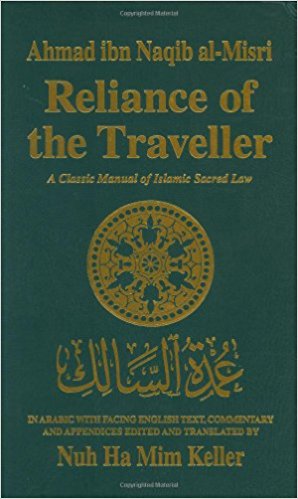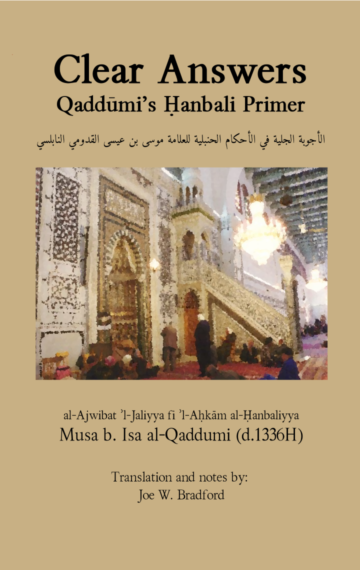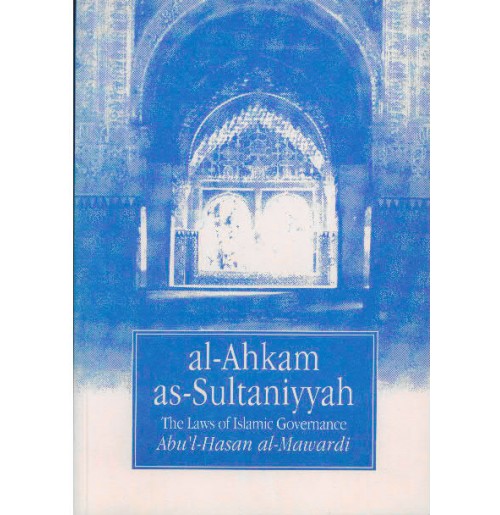Why It’s a Bad Idea for Western Financial Firms to Get Involved in Zakat
by Christopher W Holton
The issue of zakat is one that is central to the concerns about Shariah-compliant finance, but concerns about zakat should extend far beyond Shariah finance alone. Zakat is a real threat because it is doctrinal in Islam and no figure, organization or body in Islam has the authority to change it. But why is it a threat? Because it is a main funding source for jihad.
We have detailed this extensively on SFW for years, but periodically we feel it necessary to reinforce and update our educational outreach on zakat. What prompted this latest report was an article we came across on a British law firm’s web site of a roundtable discussion about zakat as it related to personal injury settlements from legal action in the UK.
The actual content of the Anthony Gold posting isn’t particularly interesting or revealing except that it shows that Western firms–legal and financial–are getting involved in zakat.
It leaves us wondering, do Western firms involved, even tangentially, in zakat really know about all the aspects of zakat? Most importantly, do they realize where, by Islamic law (Shariah), zakat payments are meant to end up? Are they aware of the potential legal exposure here? Do they even care that they might be funding violent jihad?
We hope that this detailed report on this all-important aspect of terrorism financing might prompt at least some of the financial and legal professionals in the West to reconsider their involvement in zakat at the very least, if not Shariah finance altogether.
A Brief Explanation of Zakat
“Zakat,” is often described as a form of tithing in Islam, although, unlike tithing, zakat is mandatory and has specific laws associated with it. Zakat is closer to a tax than it is to a tithe. One thing zakat is NOT is charity. It is worth mentioning that zakat payments are forbidden from going to non-Muslims, except in a few, specific instances. That is one reason why donations from wealthy Islamic nations to natural disasters around the world are often paltry.
Individuals, as well as businesses, are required to pay zakat and there are extensive sections in shariah texts delineating the laws associated with zakat.
Going into all the Shariah aspects of zakat is beyond the scope of this article.
Suffice it to say that all Muslims who are able to do so must donate 2.5% of their wealth (5% for Shia) toward zakat each year. Zakat is very important in Islam and is considered one of the five pillars of Islam.
And modern administration of zakat often involves Islamic charities and governments.
Zakat is a concern because, as the bipartisan 9-11 Commission Report detailed, it has in fact been used to fund Al Qaeda and other terrorist groups. Note that the following passages from the 9/11 Commission report reflect the misconception that zakat is a “strong call for charitable giving,” but the passages do detail that zakat has been used to fund jihad, including Al Qaeda.
From page 170 of the 9/11 Commission Report:
“Al Qaeda and its friends took advantage of Islam’s strong calls for charitable giving, zakat. These financial facilitators also appeared to rely heavily on certain imams at mosques who were willing to divert zakat donations to al Qaeda’s cause.
Al Qaeda also collected money from employees of corrupt charities. It took two approaches to using charities for fundraising.One was to rely on al Qaeda sympathizers in specific foreign branch offices of large, international charities–particularly those with lax external oversight and ineffective internal controls, such as the Saudi-based al Haramain Islamic Foundation. Smaller charities in various parts of the globe were funded by these large Gulf charities and had employees who would siphon the money to al Qaeda.
In addition, entire charities, such as the al Wafa organization may have wittingly participated in funneling money to al Qaeda. In those cases al Qaeda operatives controlled the entire organization, including access to bank accounts. Charities were a source of money and also provided significant cover, which enabled operatives to travel undetected under the guise of working for a humanitarian organization.”
From page 372 of the 9/11 Commission Report:
“Charitable giving, or zakat, is one of the five pillars of Islam. It is broader and more pervasive than Western ideas of charity–functioning also as a form of income tax, educational assistance, foreign aid, and a source of political influence. The Western notion of the separation of civic and religious duty does not exist in Islamic cultures. Funding charitable works is an integral function of the governments in the Islamic world. It is so ingrained in Islamic culture that in Saudi Arabia, for example, a department within the Saudi Ministry of Finance and National Economy collects zakat directly, much as the U.S. Internal Revenue Service collects payroll withholding tax. Closely tied to zakat is the dedication of the government to propagating the Islamic faith, particularly the Wahhabi sect that flourishes in Saudi Arabia.
Traditionally, throughout the Muslim world, there is no formal oversight mechanism for donations. As Saudi wealth increased, the amounts contributed by individuals and the state grew dramatically. Substantial sums went to finance Islamic charities of every kind. While Saudi domestic charities are regulated by the Ministry of Labor and Social Welfare, charities and international relief agencies, such as the World Assembly of Muslim Youth (WAMY). are currently regulated by the Ministry of Islamic Affairs. This ministry uses zakat and government funds to spread Wahhabi beliefs throughout the world, including in mosques and schools. Often these schools provide the only education available; even in affluent countries, Saudi-funded Wahhabi schools are often the only Islamic schools. Some Wahhabi-funded organizations have been exploited by extremists to further their goal of violent jihad against non-Muslims.”
So, we have documentation that zakat payments have funded terrorism, but what the 9/11 Commission got wrong was their belief that zakat going to Al Qaeda was a violation of zakat rules. The reality is that zakat funds Jihadist groups like Al Qaeda because Shariah mandates it. Islamic charities are so often caught funding jihadist groups because Shariah mandates it.
This was not a case of “corrupt” charities violating zakat laws; it was a case of Islamic charities following Shariah to the letter of the law.
Don’t take our word for it. Just read recognized, widely-circulated Shariah texts…
One of the most authoritative sources for information on zakat is a book called “The Reliance of the Traveler, A Classic Manual of Islamic Sacred Law.” That book has a whole section devoted to the rules of zakat, including “THE EIGHT CATEGORIES OF RECIPIENTS.” On page 272, section h8.17, one category is labeled:
“THOSE FIGHTING FOR ALLAH
The seventh category is those fighting for Allah, meaning people engaged in Islamic military operations for whom no salary has been allotted in the army roster (O: but who are volunteers for jihad without remuneration). They are given enough to suffice them for the operation, even if affluent; of weapons, mounts, clothing, and expenses (O: for the duration of the journey, round trip, and the time they spend there, even if prolonged. Though nothing has been mentioned here of the expense involved in supporting such people’s families during this period, it seems clear that they should also be given it).”

Reliance of the Traveller
Reliance of the Traveler is one of the most widely circulated and used manuals of Islamic sacred law (shariah). It has been offered for sale each year at the convention of the Islamic Society of North America (ISNA), the largest Muslim Brotherhood organization in the USA, based out of Indiana. It has been endorsed as good law by the following Islamic authorities:
• The Imam of the Mosque of Darwish Pasha in Damascus, Syria
• The Mufti of the Jordanian Armed Forces
• The International Institute of Islamic Thought (IIIT) of Herndon, Virginia
• Al Azhar Islamic Research Academy of Cairo (the world’s most prestigious Sunni university)
This passage, from this widely-used Shariah text seems to have been written expressly about zakat payments to charities which have funded Al Qaeda, HAMAS, Hezbollah and the Taliban. Note from the passage that such payments are meant specifically for irregular forces who are not part of any army roster, which describes terrorist/guerilla/insurgent groups exactly. Note also that they are meant for “Islamic” military operations and not secular groups (i.e. HAMAS and not the Popular Front for the Liberation of Palestine-General Command). Note that such payments are made even if the recipient is affluent…like Osama Bin Laden. And, finally, the families of fighters are to be taken care of, such as payments by Saddam Hussein and Saudi princes to families of Islamikaze bombers in Gaza and the West Bank.
It is very important to show, however, that Reliance of the Traveler is far from the only authoritative manual of Islamic sacred law that confirms the use of zakat to fund Jihad. In fact, some critics discount (inappropriately and incorrectly) the importance of Reliance because it traces its origins back several hundred years.
Therefore, when we find other authoritative texts that confirm zakat funding Jihad, we are absolutely compelled to reveal them in as great detail as practical. Now is just such an opportunity.
A few years ago we were introduced to a manual of Shariah that was also offered for sale at the annual convention of the Islamic Society of North America (ISNA). As we mentioned above, ISNA is the largest Muslim Brotherhood organization in the United States. They were exposed as a Muslim Brotherhood organization and were named as an unindicted co-conspirator in the Holy Land Foundation trial, the largest terrorism financing prosecution in US history. More recently, ISNA’s Canadian wing lost its charity status for sending $280,000 to a Jihadist terrorist group in Pakistan. During his term in office, President Obama supplied a videotape message to the ISNA convention praising the organization, despite–we hope–its ties to the Muslim Brotherhood and the Holy Land Foundation.
The Shariah manual that was offered for sale at the ISNA convention is a two-volume set known as “A Summary of Islamic Jurisprudence.” It was written by Dr. Salih Al-Fawzan in 2005.
Sheikh Fawzan is considered one of the most esteemed Shariah scholars in the entire Islamic world, having received three degrees in Shariah from the University of Imam Muhammad in Riyadh, Saudi Arabia. He is a member of the Council of Senior Scholars, the Fiqh Committee in Mecca and the Committee for Supervision of the Callers in Hajj. He also heads the Permanent Committee for Islamic Research and Fatwas. He is the Imam at the Prince Mut’ib Ibn Abdul-Aziz Mosque, hosts a national radio program in Saudi Arabia and has published 60 books.
A Summary of Islamic Jurisprudence is published by Al-Maiman Publishing House in Riyadh, Saudi Arabia.

A Summary of Islamic Jurisprudence
Several chapters of Volume 1 are devoted to zakat. Chapter 8 is devoted in its entirety to “Entitled Recipients of Zakat.”
This chapter provides a complete explanation of the 8 categories of recipients of zakat who are entitled to receive it. Of particular interest to those of us in the West is the seventh category. From pages 364-365 of A Summary of Islamic Jurisprudence, Volume 1:
“The seventh category is that spent in the Cause of Allah such as that given to warriors who volunteer in fighting for the Cause of Allah and they do not take salaries from the Public Treasury of Muslims. Generally, the phrase “the Cause of Allah” refers to the war against the enemies of Muslims, as Allah, Exalted be He.”
This passage is particularly important because it defines “the Cause of Allah.” Other sources, such as Understanding Islamic Law (Shari’a) by Professor Raj Bhala, have used this vague phrase and implied that it had nothing to do with war or fighting. Clearly, Sheikh Al-Fawzan clarifies this point. To conceal or deny that zakat funds warfare is a form of taqiyya (sacred deception).
Next we have Qaddumi’s Elementary Hanbali Primer, an overview of the Hanbali school of Islamic law designed for use by the novice. Translated by a law student named Joe Bradford at the Islamic University of Medina in Saudi Arabia, this book has been in publication in Arabic since the 1300s.

Qaddumi’s Elementary Hanbali Primer
On page 123 of Qaddumi’s Elementary Hanbali Primer are listed the eight categories of zakat recipients. Category 7 is…”Non-conscripted soldiers.”
The next Islamic scholarly work to reveal the use of zakat to fund jihad is a book called Islamic Jurisprudence According to the Four Sunni Schools.

Islamic Jurisprudence According to the Four Sunni Schools
Originally written by Abd al-Rahman al-Jaziri, who was a professor at Al Azhar and served as chief inspector for Egypt’s Ministry of Religious Endowment’s Department of Mosques, this work was translated into English in 2009.
Islamic Jurisprudence According to the Four Sunni Schools has a whole section dedicated to “How zakat is to be spent” from pages 836-849.
The book provides a breakdown for each of the four Sunni schools of Shariah:
• Hanafi
• Maliki
• Hanbali
• Shafi’i
The Hanafis define the 7th category as “the poor who are cut off from financial income due to their going out on expeditions on behalf of God’s cause.”
The Maliki school is much more explicit (from page 839):
As for someone struggling in the way of God, he is to be given zakat if he is free, a Muslim, and not a Hashemite. If he meets these three conditions, however, he qualifies for zakat even if he is wealthy. Also included in this category is the spy who works on behalf of the Muslims in wartime, even if he is not a Muslim. If the spy is a Muslim, he must be free and non-Hashemite in order to qualify for zakat, whereas if he is a non-Muslim, the only condition is that he be free. It is also permissible to use zakat money to purchase a weapon…for the sake of jihad.
The Hanbalis are similarly descriptive (page 841):
Those struggling “in God’s cause” are identified as those who have gone on expeditions with the aim of jihad if there is no government fund from which to meet their expenses. Such people are to be given whatever they need by way of weapons,…food or drink, as well as whatever they need to return home.”
Finally, we have the Shaffis (page 843):
Those who are struggling in God’s cause are identified as those who have volunteered to go out on a jihad-related expedition and who receive no share of the allotments set aside for fighters by the government office. Even if they are wealthy, such fighters are to be provided with living quarters and with whatever they need in order to make the journey to and from the battlefield. They are also to be given what they need to cover the expenses of those they support, clothing and the value of a weapon; in addition, they are to be provided with something on which to carry their personal articles and their provisions for the journey if they are not accustomed to carrying such things themselves.”
Once again, each of these detailed descriptions in Shariah seem to describe providing money for irregular combatants–what we in the West call terrorists.
Our last authoritative Islamic source is al-Ahkam as-Sultaniyyah (The Laws of Governance) by Abu’l-Hasan al-Mawardi.
This book is a comprehensive account of the workings of Islamic governance and a highly influential theoretical outline of the nature of that governance. It was translated into English by Dr. Asadullah Yate of Cambridge.

The Laws of Governance
The Laws of Governance includes a section on the distribution of zakat funds on pages 180-182. Here is the description of the seventh category of zakat recipients:
Seventh, this portion is for those fighting in the way of Allah, namely the members of raiding parties; an amount from their portion is paid which is enough to cover their needs for conducting their jihad; if they go to a ribat {an Arabic term for a small fortification to house military volunteers} on the frontier, the cost of travel there is given them, and if possible an amount for the expenses which will be incurred during their stay; if they return after having completed the jihad, they are given for the expenses incurred in their travel there and their return.
It is important to point out that none of these books have ever been considered “radical” or “extreme.” They are mainstream Islamic law texts widely used throughout the Sunni Islamic world. In fact, each one is available for sale on Amazon.com. And what each of these authoritative, widely circulated books shows is that Shariah mandates that zakat must fund Jihad.
Categories
Archives



